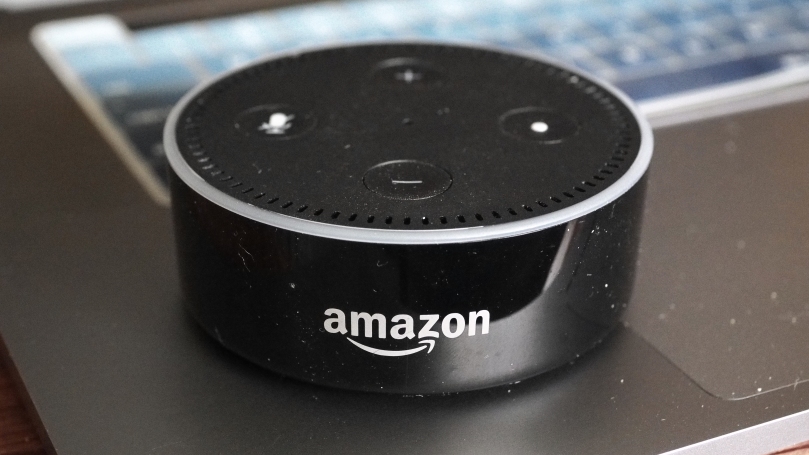 Over the last five years, ever since I retired back in January 2020, I have spent very little time on all the major social media platforms. You know what some of them are: Twitter a.k.a X, Facebook, and Instagram being the top three. Others that are social media platforms in disguise include LinkedIn (Microsoft) and YouTube (Alphabet/Google). I know there are plenty of others (Tik Tok being the behemoth), but the ones I’ve listed are the ones I have direct experience with.
Over the last five years, ever since I retired back in January 2020, I have spent very little time on all the major social media platforms. You know what some of them are: Twitter a.k.a X, Facebook, and Instagram being the top three. Others that are social media platforms in disguise include LinkedIn (Microsoft) and YouTube (Alphabet/Google). I know there are plenty of others (Tik Tok being the behemoth), but the ones I’ve listed are the ones I have direct experience with.
I’ve since deleted my account on Twitter (November 2022, one month after Musk finalized his takeover of Twitter), and Facebook in January 2023. I never signed up for Threads, but I still have a very teeny tiny account on Instagram, in part out of nostalgia and in part because there are a few accounts I still follow. My Instagram account is private; I can’t recall the last time I signed on.
What about LinkedIn? I’ve been on LinkedIn for at least a decade, joining back before it was purchased by Microsoft, back when being on it was a way to stay in touch with your business contacts. I’m still on LinkedIn, again out of nostalgia and little more. I don’t go online with LinkedIn very much anymore, averaging about once/month just to see if anything has happened with former workmates. I hate what Microsoft has done with the service, shoving posts and articles onto my timeline that I have no interest in (and never did). It is for all practical purposes Microsoft’s version of Facebook for business hucksters and snake-oil salesmen. I have debated deleting that account as well, and probably will before the year is out.
What about YouTube? Because it’s a major arm of the tentacled Alphabet Internet monster, there’s no way to totally avoid it. For example, many of the technical web sites I visit will post YouTube videos as part of the story. I click on the YouTube video in the story and YouTube/Alphabet has a bit more personal information about me to add to their infinite information stores in the Googleverse. And I will go to YouTube on my own, but not to view any of the political channels, especially after the political disaster known as the 2024 Presidential Election. I’ve learned to avoid any videos with any kind of click-baity words in the titles. If I see anything like that in the YouTube stream I immediately click “Don’t recommend channel.” Sometimes I’ll get tired and click “Not interested” to keep a whole raft of unwanted videos off my feed. And that’s another aggravation of YouTube: select a video, any video, that catches your attention and play it, and the next time you go onto YouTube your feed is filled with similar videos from other channels. I then have to use a combination of don’t recommend and not interested before I can clear them out. And just to show how sneaky YouTube can be, after a period of time measured in a few months YouTube will pop up some of those booted out videos again, as if to ask if you want to see them again. And then I have to play whack-a-mole and get them off. And before someone writes in the comments about all the other “freer”, and thus “better” video platforms, I’m not interested in a repeat of the Og Vorbis fiasco. The world has settled on YouTube as the primary video platform, which means it pulls folks like me along if I want to view what they produce. I do have tools that YouTube provides, however primitive, to curate and control what is presented to me.
That doesn’t mean I’m completely off of social media. Since leaving X and Facebook I’ve signed up to Bluesky and Mastodon. In both cases I follow a handful of accounts, and have at best a handful of followers. I don’t have the time, nor do I wish to make (a.k.a. waste) the time to doom scroll through the posts. I like Bluesky in particular because Bluesky has no algorithm to force “engagement”; I see posts only from who I elect to follow. Bluesky has sophisticated built-in tools to curate and block if necessary who can comment on your posts, as well as instantly blocking anyone (or anything) on the slightest whim. The Mastodon account has a slightly steeper learning curve and is a little rough around the edges, but nothing I can’t handle personally. I can still stop following or blocking anyone, and right now on Mastodon I’m following exactly 12 accounts, the majority of which are also on Bluesky. What’s interesting about those dual accounts (i.e. an account on both platforms) is that many of them post more on Bluesky than on Mastodon.
How has all of this account deletion and drastic platform control effected me? I’m a lot calmer these days. In just one example, I can point to how all this work has contributed to it lowering my blood pressure (along with diet and exercise and not driving in rush hour traffic every day). My mental state is a lot calmer. I’m spending less time on my phone, although my wife will strongly disagree with me. She feels I need to cut back even more, and I’m sure she’s right. I find phone use a time waster and attention trap. My time and my attention are my most precious treasures. Once used I can never get my time back, having missed more important opportunities to spend that time and attention.


You must be logged in to post a comment.